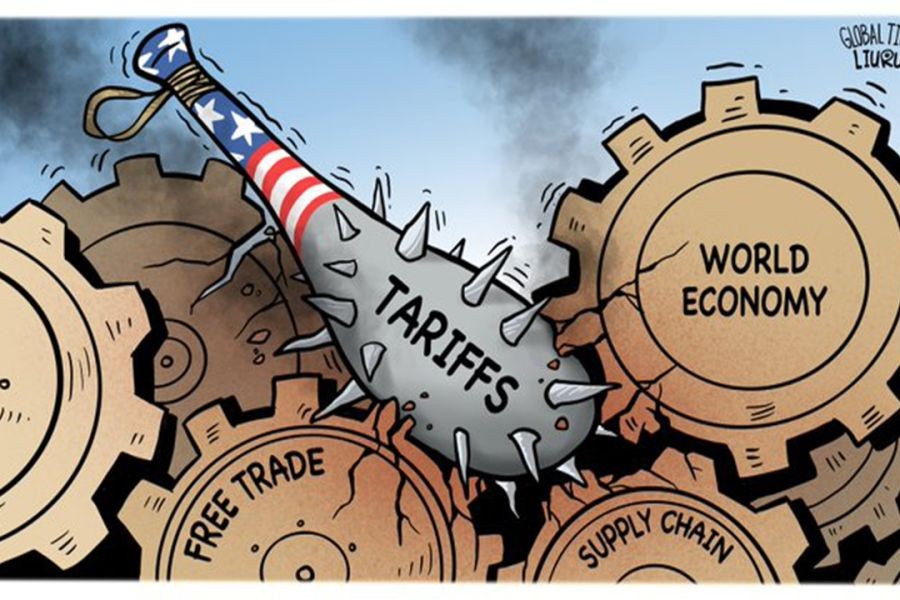New Zealand’s economy is deeply intertwined with global markets, making it crucial for sustainability consultants to understand these economic connections. As a country renowned for its pristine environment and robust primary industries, New Zealand is uniquely positioned to leverage its economic ties to promote sustainable growth.
The Importance of Global Economic Connections for New Zealand
New Zealand’s economic prosperity is closely linked to its ability to engage in international trade. According to Stats NZ, exports account for approximately 30% of New Zealand’s GDP, with primary commodities such as dairy, meat, and horticultural products leading the charge. This reliance on export markets underlines the significance of global economic relationships.
For sustainability consultants, understanding these connections is vital for advising local businesses on sustainable practices that align with international standards. By focusing on sustainable production methods, New Zealand can not only meet global demand but also enhance its reputation as a provider of eco-friendly products.
Case Study: Fonterra’s Sustainable Practices
Problem:
Fonterra, New Zealand’s largest dairy exporter, faced growing global demand for sustainable dairy products. The company needed to adapt its practices to meet international sustainability criteria, or risk losing market share.
Action:
Fonterra implemented a comprehensive sustainability strategy, focusing on reducing carbon emissions, improving water usage efficiency, and enhancing animal welfare. The company also collaborated with local farmers to promote sustainable farming practices.
Result:
- Carbon emissions reduced by 20% over five years.
- Water usage decreased by 15% through improved irrigation techniques.
- Market share in Europe and North America increased by 10% due to enhanced brand reputation.
Takeaway:
This case study highlights the importance of sustainable practices in maintaining and expanding global market access. For New Zealand businesses, investing in sustainability is not just a moral imperative but a strategic necessity.
Challenges and Opportunities in Global Economic Ties
While New Zealand benefits from its global economic connections, these ties also present challenges. For instance, reliance on exports makes the country vulnerable to international market fluctuations and trade barriers. However, by adopting innovative technologies and diversifying export markets, New Zealand can mitigate these risks.
Pros and Cons of New Zealand’s Export-Driven Economy
Pros:
- Economic Growth: Export industries drive GDP growth and job creation.
- Global Reputation: High-quality, sustainable products enhance New Zealand’s international standing.
- Market Diversification: Access to multiple markets reduces economic dependency on a single region.
Cons:
- Market Volatility: Economic downturns in key markets can impact export revenue.
- Trade Barriers: Tariffs and quotas can limit market access.
- Environmental Impact: Intensive farming practices can lead to environmental degradation.
Future Trends and Predictions
Looking ahead, New Zealand’s economic landscape is poised for transformation. The Ministry of Business, Innovation and Employment (MBIE) predicts that by 2030, 40% of New Zealand’s energy needs will be met by renewable sources. This shift towards renewable energy presents significant opportunities for sustainability consultants to guide businesses in reducing their carbon footprint and capitalizing on green technology.
Moreover, the rise of digital trade platforms will further integrate New Zealand into the global economy, enabling even small businesses to reach international markets. However, this also necessitates a focus on cybersecurity and data protection, areas where sustainability consultants can offer valuable expertise.
Myths and Misconceptions
- Myth: New Zealand’s economy is isolated and self-sufficient.
- Reality: New Zealand is highly dependent on international trade, with exports comprising a significant portion of GDP.
- Myth: Sustainable practices are too costly for Kiwi businesses.
- Reality: Implementing sustainability measures can lead to long-term cost savings and enhanced competitiveness.
Conclusion
New Zealand’s economic ties with the world present both challenges and opportunities for sustainability consultants. By understanding these connections and leveraging them to promote sustainable practices, consultants can play a pivotal role in shaping the country’s economic future. As global demand for sustainable products continues to grow, New Zealand is well-positioned to become a leader in this space.
What strategies will you implement to ensure sustainable growth in your business? Share your thoughts and join the conversation!
People Also Ask
- How does global trade impact New Zealand’s economy?Global trade is vital for New Zealand, with exports contributing significantly to GDP. Diverse markets help mitigate economic risks.
- What are the biggest misconceptions about New Zealand’s economy?A common myth is that New Zealand is self-sufficient, but it heavily relies on exports, highlighting the need for sustainable practices.
- What future trends will shape New Zealand’s economy?By 2030, a shift to renewable energy and digital trade platforms will drive economic transformation, offering new opportunities.
Related Search Queries
- New Zealand export economy
- Sustainable business practices in NZ
- NZ renewable energy projections
- Impact of global trade on NZ
- Future of New Zealand’s economy
- Fonterra sustainability initiatives
- New Zealand market diversification
- Challenges in NZ’s export economy
- Opportunities for NZ businesses globally
- Economic trends in New Zealand































